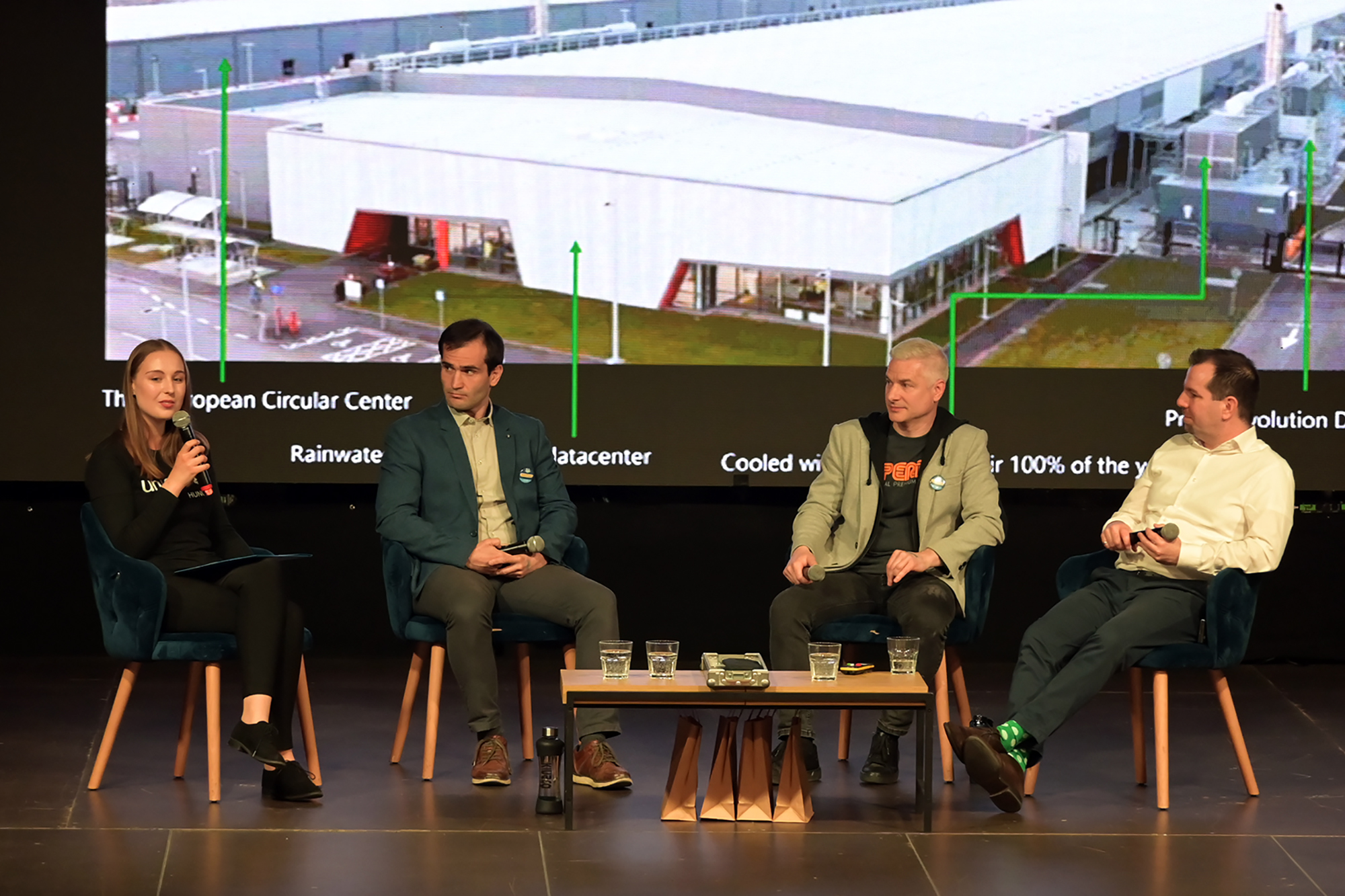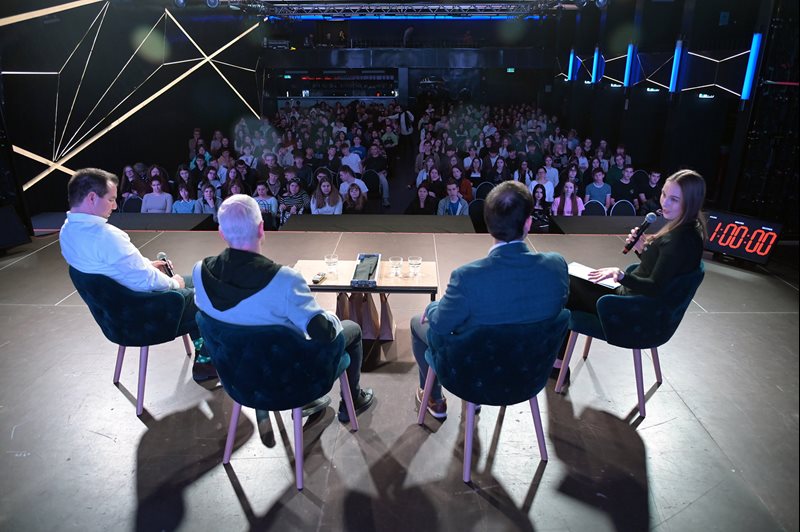Will there be a liveable future for today’s young generation?

During this year’s Sustainability Week, 1500 students came to the Akvárium Club in Budapest, where UNICEF Hungary organised the largest-ever Youth Climate Action Conference. High school and secondary school students from all over the country gathered to learn, ask questions and talk about climate change and the future-shaping changes they need to prepare for today that will not only affect their environment, but may also rewrite their daily lives. Forty of Hungary’s well renowned experts, including Dr. András Márton, Assistant Professor at the Institute of Sustainable Development (Corvinus University of Budapest, Hungary) participated at roundtable discussions, where the experts sometimes had conflicting opinions and different perspectives, but this made each discussion truly interactive and gave young people a better insight into the issues from different perspectives. The students were able to see a living example of how a common goal can be successfully approached together in different ways. The focus of this year’s conference was the future, which immediately sparked the natural interest of young people, who asked the experts a host of questions.

Can artificial intelligence help? Are we leaving a digital carbon footprint? How do we know the truth about whether something is really sustainable? Would it make a measurable difference if orders from online web shops suddenly stopped?
These and similar questions were asked by students at the event, which also provided an opportunity to hear from experts, NGOs and government representatives. Dr. Barbara Botos, Hungary’s Travelling Climate Ambassador, said that change can only work if young people, professionals, NGOs, businesses and public decision-makers are open to each other, i.e. if there is an active and honest communication channel on all sides, and if no area of cooperation is left out.
The conference was attended by representatives from different fields, from the IT sector to academia and healthcare, but all experts agreed that wherever young people want to go, they can make a difference by thinking innovatively and with an environmentally aware set of values. Whether it’s rethinking the way we eat, dress or use our digital devices, anyone can contribute to a safer, healthier future by making smart use of artificial intelligence and reducing our digital carbon footprint.
Workshops running in parallel to the presentations showcased useful and innovative initiatives and solutions specifically for young people that can fundamentally change the way they think about sustainability and the way they live their lives. For example, students heard first-hand about Planetary Health and cardio-meteorology approaches. Many were unaware that we are leaving a growing digital carbon footprint every year, and with the help of experts, they started to “clean up” their digital devices and reduce their footprint at the event.
By the end of the event, the iceberg melted totally!
At the event, the warming was symbolised by a melting block of ice in the middle of the Akvárium Club. The highly visual installation was very popular among students, who were able to see how much change can happen in such a short space of time. UNICEF Hungary remains committed to supporting young people in the field of climate protection, providing opportunities for Hungarian students to gain authentic knowledge, ask questions and express their views. The children’s organisation continues to welcome young planet defenders to join its programme. More information and how to join HERE >>
CALL FOR PARTICIPATION (Hungarian)
UNICEF Hungary and Alapértékek Nonprofit Ltd. have launched a joint research to measure the feelings of secondary school students about climate change. The questionnaire is in Hungarian, open and can be answered online by young people aged 10-18. The organisation is asking people of all ages to contribute to its work on climate change by completing the questionnaire and is also seeking the help of teachers and parents to promote the survey.
CLIMATE CHANGE ATTITUDES AMONG YOUNG PEOPLE QUESTIONNAIRE AVAILABLE HERE >>> FILL IN
“It is a great pleasure for us that in a few years, our Climate Heroes programme has become so popular that the number of participants at our conference has grown year after year. This year’s event sold out in just a few weeks and was full throughout the day. This is a further proof that young people care about these issues and want to gain credible knowledge on the subject. Our climate lessons (in Hungarian) are available free of charge on our website and can be used as part of a classroom lesson. And to the dedicated teachers who spare no time and energy to help involve their students in the programme and bring their classes to our events, I would like to thank you for your cooperation and support”, said Ágnes Rajna, Communications Manager of UNICEF Hungary.
UNICEF Hungary’s Climate Heroes programme is supported by well-known companies and corporations: Alteo Energy Services Plc, Deloitte Hungary, Dentons, Indotek Group, Magyar Telekom, SPAR and Akvárium Club.